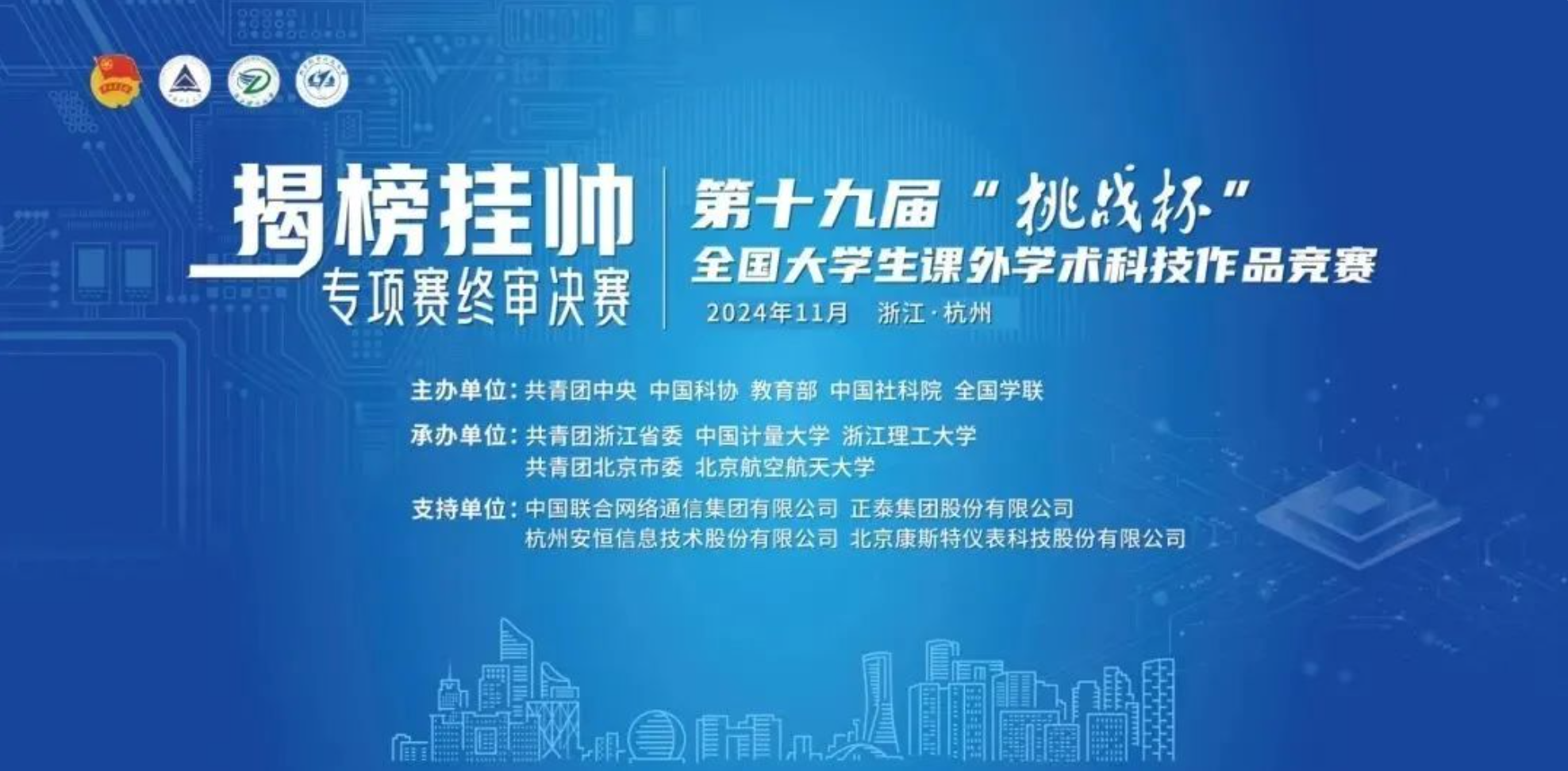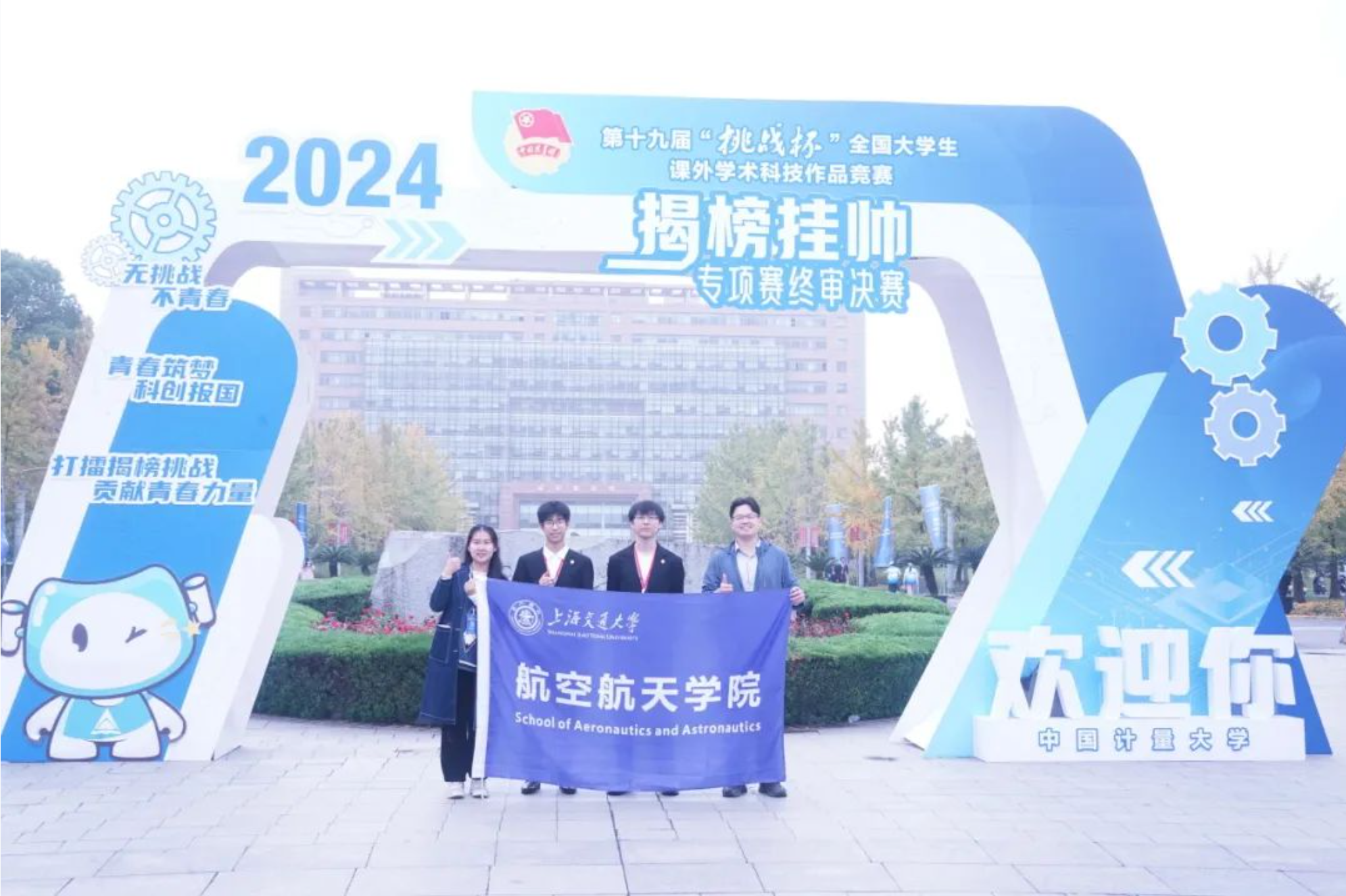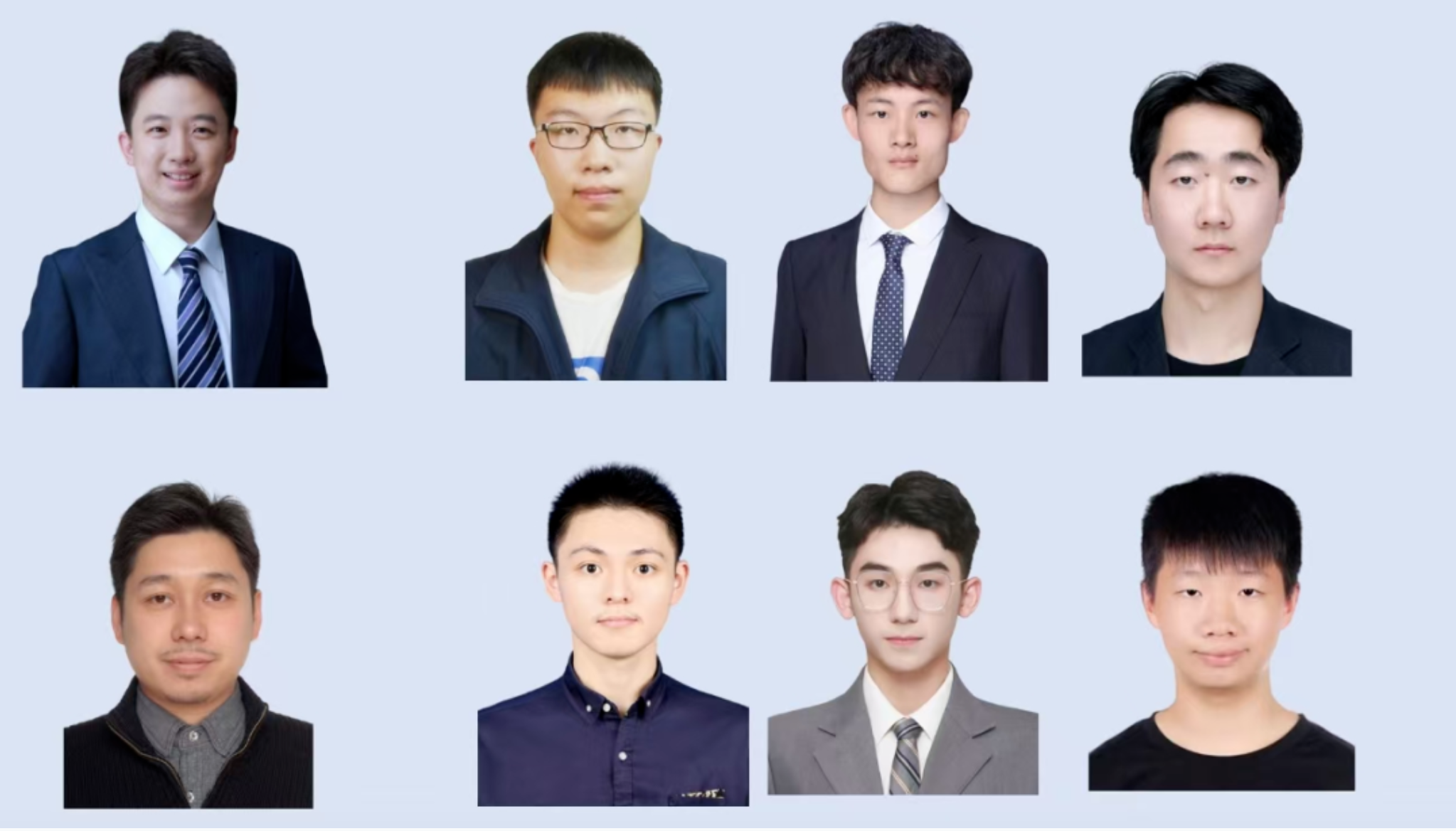Congratulations! The students of the SAA have achieved a remarkable first in the "Challenge Cup" Matchmaking Special Competition!

Recently, the 19th "Challenge Cup" National Collegiate Extracurricular Academic and Technological Innovation Contest 2024 Annual "Challenge Boss" Special Project Final Review and Finals were held at Beihang University, China Jiliang University, and Zhejiang University of Technology.
The SAA had a record-breaking performance in this year's competition, with three teams advancing to the final round and winning one first prize, one second prize, and one third prize, making a significant contribution to the school's best-ever performance.


Team Spirit

Project Name: Machine Learning-Based Hydrogen Energy Hybrid Drone Energy Intelligent Allocation and Management Technology
Guiding Teachers: Chen Fang, Tian Peidong, He Liaolai
Team Members: Huang Tingyu, Chen Xuanyu, Zhang Panrong, Jiang Shuyi, Li Jiaxuan, Wang Yuan
Award: Grand Prize
Project Introduction: Driven by the national dual-carbon strategy and emerging industries such as low-altitude economy and hydrogen energy utilization, AVIC Guangdong Aircraft Industry Co., Ltd. of China Aviation General Aircraft Corporation proposed the "hydrogen energy hybrid power unmanned aerial vehicle energy intelligent allocation and management technology" challenge. In complex flight tasks such as water search and rescue, environmental monitoring, and forest fire prevention, the management of drone energy is crucial. The Chen Fang team from the Aerospace Engineering Institute of Shanghai Jiao Tong University took up the challenge, addressing the bottlenecks in existing power architecture, the complexity of data collection, and the energy management challenges by introducing modular design concepts. They established a hydrogen-lithium modular hybrid power architecture and achieved rapid adaptation to different flight tasks. Additionally, the team adopted a twin-model-based advanced perception system, achieving rapid and precise data collection response and efficient prediction of future system states. Furthermore, based on deep reinforcement learning, the team developed fine-tuned energy management allocation technology, further improving the overall performance of the drone. Through innovative research and development, the team successfully developed a long-range, high-lifespan, and broadly applicable hybrid electric propulsion energy management system solution, reducing hydrogen consumption by 8%, increasing flight range by 12%, and achieving an energy average efficiency of 97.3%, which is theoretically optimal. This result will inject innovative momentum into the fields of hydrogen-powered aviation, low-altitude economy, and other electric aviation new areas, and promote the coordinated development of the green aviation industrial chain.

Project Name: Integrated Aerodynamic and Noise Optimization Design and Validation of Propellers for Unmanned Aerial Vehicles
Guiding Teachers: Li Weipeng, Li GaoHua, Wu JunQi
Team Members: Pan Zimo, Wu Jiajun, Wang Jiayi, Wang Chenyu, Xu Yucheng
Award: Second Prize
Project Introduction: In recent years, with the rapid development of the drone industry, the propeller's propulsion efficiency and noise problems have become urgent to solve. This project aims to reduce the aerodynamic noise of the propeller by improving the propeller design, selecting the chord length, twist angle, and sweep angle as the key design variables, and using the reconstruction vortex particle method for noise calculation. It also proposes a comprehensive integrated design optimization method, using an agent model to establish the relationship between input parameters and various performance indicators, and then using genetic algorithms to find the optimal solution. Finally, the optimized propeller is obtained, which reduces the aerodynamic noise of the propeller to a great extent while meeting the requirements of thrust and propeller efficiency, thereby improving the drone's operational capabilities in various scenarios.

Project Name: Folding Fixed-Wing Drone Autonomous Rescue Mission Planning Scheme for Maritime Environments
Guiding Teachers: Hong Haichao, Wu Junqi
Team Members: Huang Tingyu, Chen Xuanyu, Zhang Panrong, Jiang Shuyi, Li Jiaxuan, Wang Yuan
Award: Third Prize
Project Overview: The tilt-and-stow fixed-wing drone has the advantages of flexible deployment, convenient takeoff and landing, and fast cruising speed. For the scenario of autonomous rescue at sea, this project designs and simulates a guidance algorithm to control the drone's rotor to take off and switch to fixed-wing flight, avoiding the random thunderstorm areas in the sea, and reaching the position of signal reception. After filtering the noisy distorted information of the location of the stranded ship received through the algorithm, the drone flies to the target area and guides itself to land accurately on the platform of the ship using the visual algorithm in the rotor mode. The simulation results prove the feasibility of the team's technical solution, and it is expected to deploy the algorithm on a real machine for actual rescue missions in the future.
The "Challenge Cup" National Collegiate Extracurricular Academic and Scientific Technology Achievements Contest is a competitive event with guiding significance, exemplary nature, and mass participation, which is jointly hosted by the Central Committee of the Communist Youth League, the Chinese Association for Science and Technology, the Ministry of Education, the Chinese Academy of Social Sciences, the All-China Federation of Students' Associations, and the provincial government where the event is held. It is known as the "Olympic" event of contemporary college students' scientific and technological innovation. The "Challenge Cup" Special Contest of "Unveiling the List and Championing the Cause" targets major social issues and problems, and adopts the mode of "government and enterprises unveiling the list, competitive unveiling of the list, and signing the contract upon unveiling the list," through the process of "inviting the list, unveiling the list, competing for the list, evaluating the list, and winning the list." Government departments, enterprises, and other units provide the needs and set the problems, and the organizing committee issues "heroic invitations" to colleges and universities and the general public. College student teams and young science and technology talent teams compete to unveil the list, and the contest guides young people to face the country's major needs and actively participate in the front line of scientific research and development.

Copyright© 2015 School of Aeronautics and Astronautics Email: SJTUSAA@sjtu.edu.cn
Technical Support: WeiCheng

